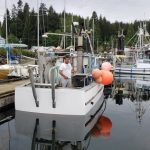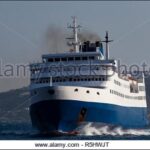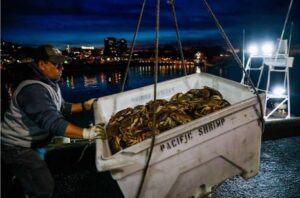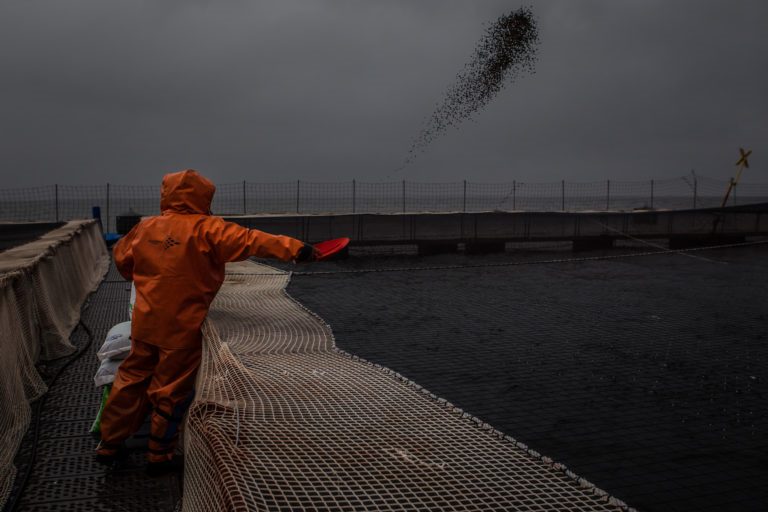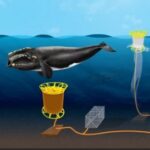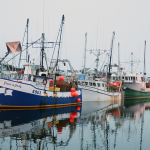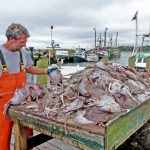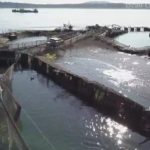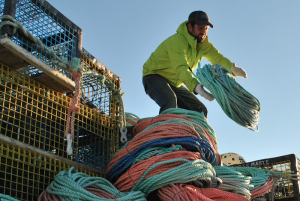Tag Archives: F/V Galwad-y-Mor
The bomb-hunters scouring UK waters for unexploded weapons
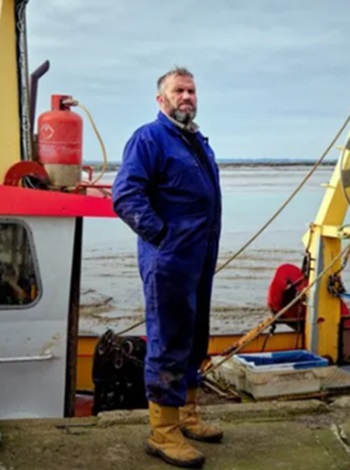 “We are finding unexploded ordnance and dealing with it on a daily basis,” Mr Gooderham says. “There are many that we don’t know about.” Despite being dropped – or dumped – decades ago, unexploded ordnance (UXO) continues to pose a very real danger to those working in our waters. “The real problem is when fishing vessels and dredgers encounter unexploded ordnance,” says Mr Gooderham. “That is when it becomes dangerous.” In 2020, fishing vessel Galwad-Y-Mor was thrown into the air when a World War Two bomb exploded 25 miles (40km) north of Cromer, Norfolk. Five crew members were injured, including one left blinded in one eye. photos, more, >>click to read<< 07:06
“We are finding unexploded ordnance and dealing with it on a daily basis,” Mr Gooderham says. “There are many that we don’t know about.” Despite being dropped – or dumped – decades ago, unexploded ordnance (UXO) continues to pose a very real danger to those working in our waters. “The real problem is when fishing vessels and dredgers encounter unexploded ordnance,” says Mr Gooderham. “That is when it becomes dangerous.” In 2020, fishing vessel Galwad-Y-Mor was thrown into the air when a World War Two bomb exploded 25 miles (40km) north of Cromer, Norfolk. Five crew members were injured, including one left blinded in one eye. photos, more, >>click to read<< 07:06
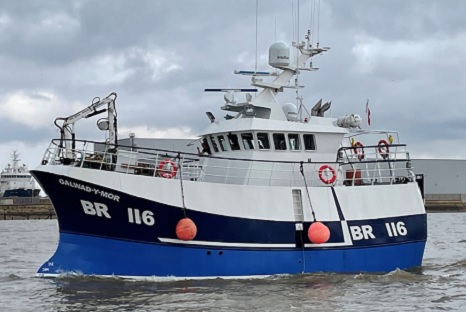
Bomb Damaged Crabber Rebuilt
F/V Galwad-Y-Mor has fished from Grimsby for many years and was 20 miles north of Cromer in December 2020 when the crew reported to the skipper that there was unusually high tension on the back rope, indicating that the gear had snagged on an obstruction in a water depth of around 30 metres. Before the crew could take any further action, what is now believed to have been a 250kg bomb dating back to the Second World War 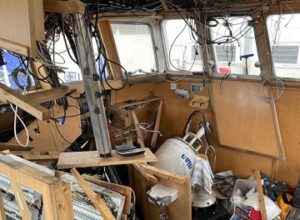 detonated directly beneath the hull, triggering a massive shock wave. Galwad-Y-Mor is believed to have dropped 6-7 metres into the gas bubble generated by the explosion, with the vessel thrown sharply back to the surface as the bubble filled. The result was massive damage to the vessel and all of the crew were hurt – with some of them receiving life-changing injuries. photos, >click to read< 10:59
detonated directly beneath the hull, triggering a massive shock wave. Galwad-Y-Mor is believed to have dropped 6-7 metres into the gas bubble generated by the explosion, with the vessel thrown sharply back to the surface as the bubble filled. The result was massive damage to the vessel and all of the crew were hurt – with some of them receiving life-changing injuries. photos, >click to read< 10:59
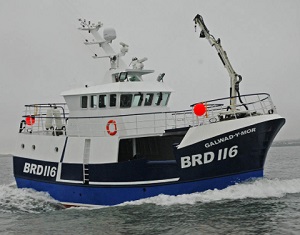
MAIB report reveals drama of the moment a WWII bomb exploded under a fishing boat
The shocking details of an explosion off Cromer which left a fishing boat’s crewmen with life-changing injuries have been laid bare in a new report. A German bomb had lain dormant on the seabed since the Second World War 80 years ago until it was disturbed by crab-pot string from the Galwad-Y-Mor, just over two years ago. The bomb detonated, triggering a shockwave and gas explosion that threw the boat out of the water and left the crew nursing a string of serious injuries, including broken arms and legs, and the loss of sight in one crewman’s eye. photos, >click to read<,–>click for related stories< 11:08

Investigation continues into fishing boat struck by WWII explosives off Skegness coast
The boat, Galwad-Y-Mor, was damaged and abandoned when an explosion occurred just 37 miles off the coast of Skegness, on December 15 last year, according to a report by the Marine Accident Investigation Branch. A crew of seven were operating in potting fishing grounds east of the Wash, off Lincolnshire’s coastline, after departing from Grimsby. At around 11:20am, some of the crew were hauling in a string of crab pots, whilst the 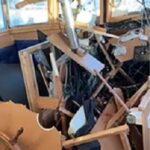 skipper was in the wheelhouse with the rest of the crew members belowdecks working the pots. The vessel was thrown up from the sea surface and quickly landed back down. All electrical power was immediately lost. The crew members were all hurt. Some endured life-changing injuries. >click to read< 09:04
skipper was in the wheelhouse with the rest of the crew members belowdecks working the pots. The vessel was thrown up from the sea surface and quickly landed back down. All electrical power was immediately lost. The crew members were all hurt. Some endured life-changing injuries. >click to read< 09:04
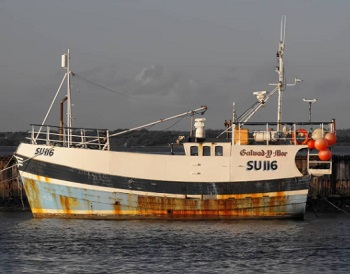
Who are the Freshwater Five and what did they do? Two of the men will have their convictions considered
In 2011, five men were given a combined 104-year prison sentence for masterminding a £53m drug smuggling operation. On May 29, 2010, a small fishing boat, the Galwad-Y-Mor, left the Isle of Wight on what the crew claimed was a routine trip to catch lobster and crab in the Channel. That night, a large drug operation led by the Serious Organised Crime Agency was taking place,,, Two of the men, Jonathan Beere and Daniel Payne, will have their convictions considered by the Court of Appeal this week. >click to read<
Freshwater Five: Radar evidence suggests surveillance plane and a suspect vessel – The Court of Appeal hearing begins tomorrow for two of the Freshwater Five, where new information will be put before the judge. All five men protest their innocence – following the trial they were sentenced for a total of 104 years; >Click to read<15:10
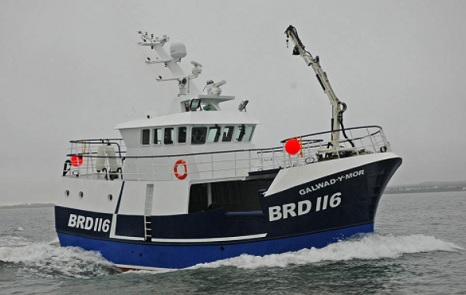
Unexploded Ordnance May be Cause of Fishing Vessel Blast
The Marine Accident Investigation Branch (MAIB) has launched an inquiry into a blast aboard a fishing vessel off Norfolk, UK on December 15, which injured all seven crewmembers on board. The explosion aboard the crabbing vessel Galwad-Y-Mor,,, “The hauler was being used to heave in the back 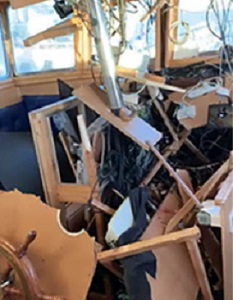 rope, and the crew had let the skipper know that there was a lot of tension on the line, when there was an unexpected explosion. Galwad-Y-Mor was thrown up from the sea surface, then landed heavily back down; all propulsion and electrical power was immediately lost. The skipper was injured and dazed, but conscious, and saw that the wheelhouse had been completely wrecked.” >click to read< 16: 32
rope, and the crew had let the skipper know that there was a lot of tension on the line, when there was an unexpected explosion. Galwad-Y-Mor was thrown up from the sea surface, then landed heavily back down; all propulsion and electrical power was immediately lost. The skipper was injured and dazed, but conscious, and saw that the wheelhouse had been completely wrecked.” >click to read< 16: 32
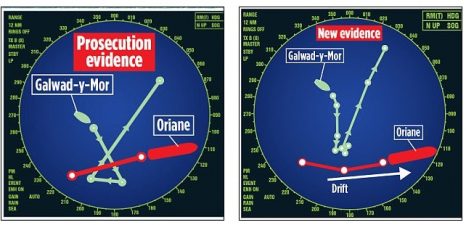
Fresh evidence that could have cleared the ‘Cocaine Crew’ of £53m smuggling plot is REJECTED
Five men serving prison terms of up to 24 years for a £53 million drug smuggling plot have lost their bid to appeal – despite fresh scientific evidence suggesting the version of events presented by the prosecution at the trial was ‘impossible’. Almost four years after The Mail on Sunday published the first of three investigations casting doubt on the convictions, the Criminal Cases Review Commission (CCRC), which has the power to refer possible miscarriages of justice to the Court of Appeal, has decided to take no action. In doing so, it is rejecting expert evidence that the fishing boat reputedly used to pick up holdalls packed with cocaine from the English Channel never actually reached the spot where the bags might have been dumped. click here to read the story 10:31
BASTARDS! Police doctored GPS data which saw fishing boat crew jailed for drug bust
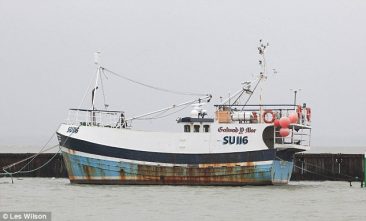 A police electronics expert made a clumsy attempt to ‘doctor’ vital evidence that led to the conviction of four fishermen and their friend for drug smuggling, according to legal documents seen by this newspaper. The five men were accused of picking up rucksacks containing 560 lb of cocaine worth £53 million in the middle of the English Channel, before dropping them overboard off the south coast of the Isle of Wight for someone else to recover. At their trial, data from the satellite tracking device on their boat, the Galwad-y-Mor, appeared to damn them. But new evidence shows that after officers from the Serious and Organised Crime Agency (Soca) seized the vessel’s Olex GPS machine, an officer tried to alter internal databases, apparently to make them conform more closely to the prosecution’s theory. And in another bombshell development, it can be revealed that the Galwad-y-Mor could not have dumped the drugs at the location alleged by prosecutors, because the water there is too shallow and the vessel would have run aground. Read the story here 10:21
A police electronics expert made a clumsy attempt to ‘doctor’ vital evidence that led to the conviction of four fishermen and their friend for drug smuggling, according to legal documents seen by this newspaper. The five men were accused of picking up rucksacks containing 560 lb of cocaine worth £53 million in the middle of the English Channel, before dropping them overboard off the south coast of the Isle of Wight for someone else to recover. At their trial, data from the satellite tracking device on their boat, the Galwad-y-Mor, appeared to damn them. But new evidence shows that after officers from the Serious and Organised Crime Agency (Soca) seized the vessel’s Olex GPS machine, an officer tried to alter internal databases, apparently to make them conform more closely to the prosecution’s theory. And in another bombshell development, it can be revealed that the Galwad-y-Mor could not have dumped the drugs at the location alleged by prosecutors, because the water there is too shallow and the vessel would have run aground. Read the story here 10:21

































